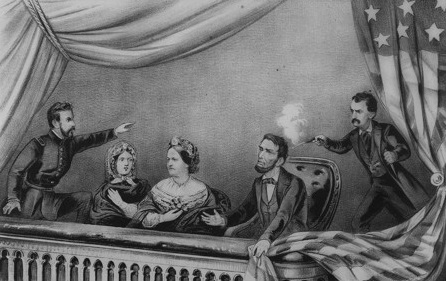On April 14, 1865, the United States was shaken to its core when President Abraham Lincoln was fatally shot by John Wilkes Booth at Ford’s Theatre in Washington, D.C. The assassination occurred just days after the end of the Civil War, casting a shadow over the nation’s hard-won peace and profoundly altering its trajectory.
A Nation in Celebration Turns to Tragedy
That evening, Lincoln and his wife Mary Todd attended a performance of Our American Cousin at Ford’s Theatre. The president, admired for his leadership during one of the most tumultuous periods in American history, was in a jubilant mood following the surrender of Confederate General Robert E. Lee at Appomattox just days earlier.
Unbeknownst to Lincoln, John Wilkes Booth, a well-known actor and Confederate sympathizer, had orchestrated a plot to strike at the heart of the Union’s leadership. Armed with a derringer pistol, Booth entered the presidential box at 10:15 PM and shot Lincoln in the back of the head. Booth then leapt onto the stage, reportedly shouting “Sic semper tyrannis” (“Thus always to tyrants”) as he fled the scene.
The Aftermath of the Assassination
Lincoln was carried to a nearby boarding house where he succumbed to his injuries the next morning on April 15, 1865. The nation plunged into mourning as the president who had preserved the Union and emancipated millions of enslaved people was laid to rest. Vice President Andrew Johnson was sworn in as president, but the loss of Lincoln left an indelible void.
Booth evaded capture for 12 days before being cornered in a Virginia barn. He was fatally shot by Union soldiers during the standoff. Booth’s co-conspirators, part of a larger plot to destabilize the Union government, were captured and faced justice, with four executed for their roles in the conspiracy.
Lincoln’s Legacy and the Nation’s Wound
Lincoln’s assassination marked the first time a sitting U.S. president was murdered, leaving the country grappling with both the loss of a leader and the challenges of Reconstruction. His death elevated him to martyr status, ensuring his enduring legacy as one of America’s greatest presidents.
The tragedy of April 14 serves as a reminder of the fragile nature of peace and the enduring impact of leadership during times of crisis.




